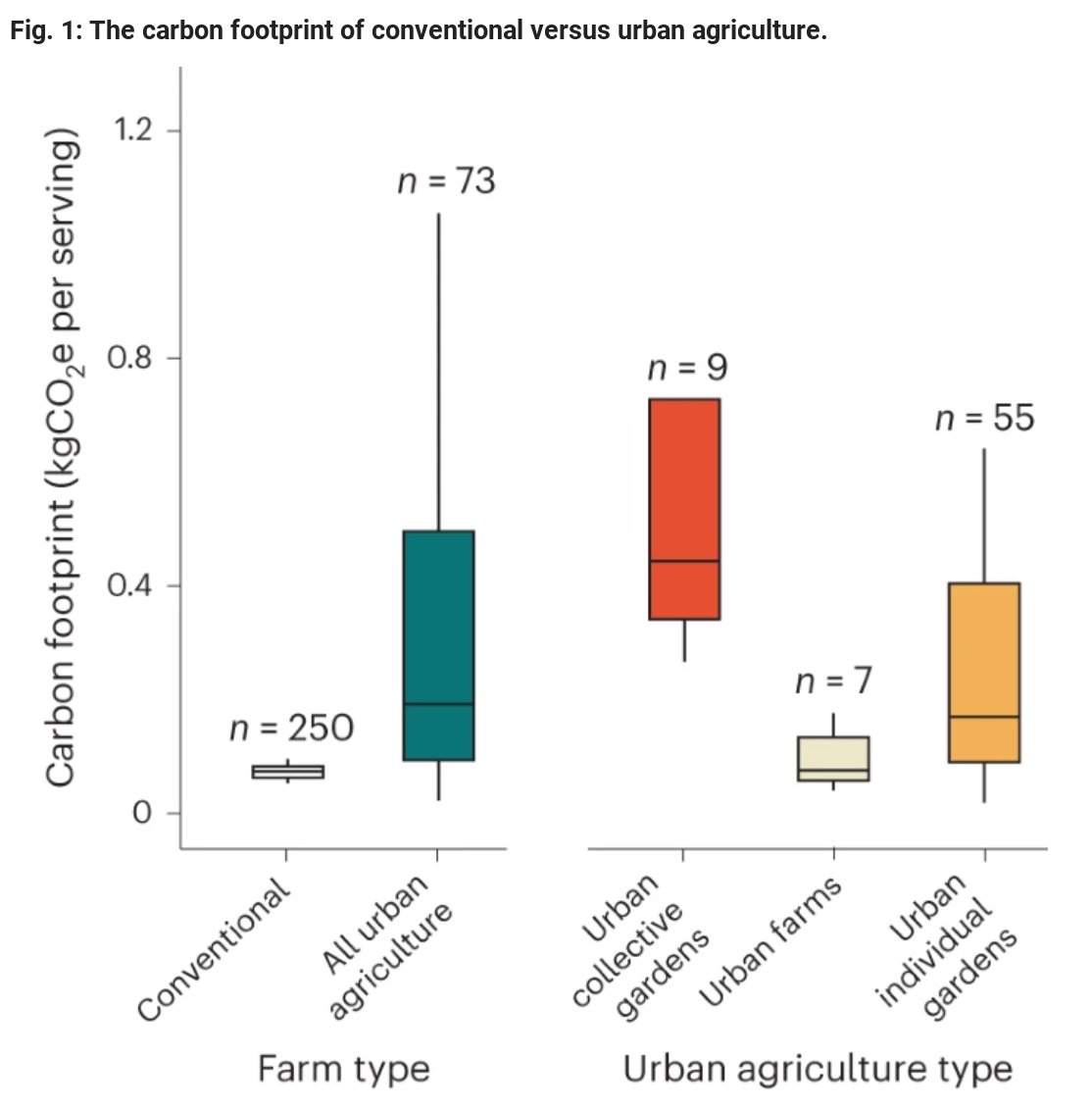There is nothing wrong with wishful thinking and aspirations, we all have harmless beliefs that get into our brains. Some home ag is clearly ridiculous - a $150 machine to grow $0.25 worth of herbs is a gimmick for the rich - but mostly it's good, slow exercise or at least good to not be on a tablet watching TikTok videos so China can harvest your personal data.
Your windowsill herbs are not saving the planet, though. The "anti-" community - you know who they are, trial lawyers and groups in Russia and China sending money to US 'environmental' groups using offshore donor-advised funds - now suing over the hydroelectric power they lobbied to create all want more urban ag, but you don't have to be cynical, just experienced, to know that is so 25 years from now they can sue over it, claiming environmental impact was not studied enough.
And the environmental impact is high. A new study found that urban agriculture is causing 600 percent more carbon emissions than farmers farming.
Urban agriculture is embraced by people who either deny or don't know scientific reality, like people who throw their coffee grounds into the garden thinking if a tiny bit of nitrogen is good, a massive quantity must be great.(1)

I am here to light a candle rather than curse their darkness, though. The same groups who intentionally conflate absolute and relative risk for shock value - like Biden administration epidemiologists - and claim any dose of any useful chemical(2) must be killing us can be assured by me that the amount of urban ag compared to conventional is so small the emissions are irrelevant.
That said, collective gardens - collectivism is a political mantra for people who think science is the worst - are the biggest belchers of CO2 while actual farmers are a pittance. For that reason, Poland does quite well while England, Scotland, and Wales are the worst pollution offenders in urban agriculture.
It shocks no one in science. Activists whose only experience with farming is promoting conspiracy theories about corporations on Twitter would be shocked to learn that chemicals cost money and profit margins are tight so that farmers have screens in tractors with real-time data showing how little chemical inputs can be used to get optimal yield from their most prized asset, the land.
It would look even worse for urban agriculture if urban farmers like commercial greenhouses didn't narrow the gap by growing efficient products like tomatoes. Yes, greenhouses contain 500 percent of the CO2 we're told make solar panels necessary but compared to the the shipping emissions of imports tomatoes and niche products like asparagus are worth growing locally even if the emissions are higher doing so.
What made no difference in emissions results? Solar panels in farming. Yes, the world has spent $4 trillion on them, but conventional energy has only declined by 0.1%. For $4 trillion we could've built enough nuclear plants that conventional energy emissions would stop cold and Germany and Denmark would not have such high electricity prices even Californians would revolt against their government.
Solar panels are a class-action lawsuit for another time, though. Like natural gas and ethanol, which environmentalists once endorsed, the trials won't happen until the industry is too big to be dismantled, so they have to settle for writing giant checks.
NOTES:
(1) That nitrogen runoff will get blamed on farmers, who use precision data and waste nothing at all - and the blame will come from environmentalists and be repeated on Twitter by people who throw coffee grounds in their garden and embrace 'urban ag.' They will get their allies in academia to write papers lamenting nitrogen and Biden appointees will then cite that 'emerging evidence' as a new reason for EPA to trespass on farms because the pond on the property is a navigable water of the United States.
Sound ridiculous? He did it already.
(2) If you are an epidemiologist at IARC or NIEHS or even Harvard you no longer accept science like 'the dose makes the poison', instead you promote the scary narrsative that any pathogen = pathology. Because that's what will get your name in the Washington Post.




Comments